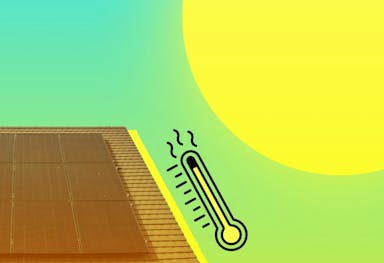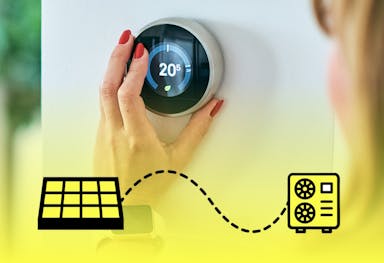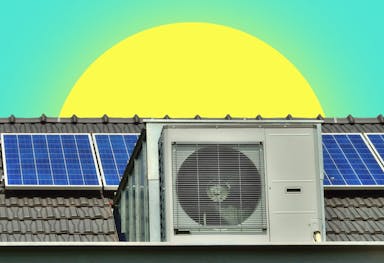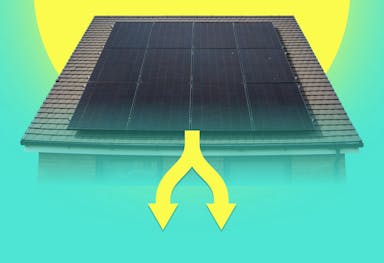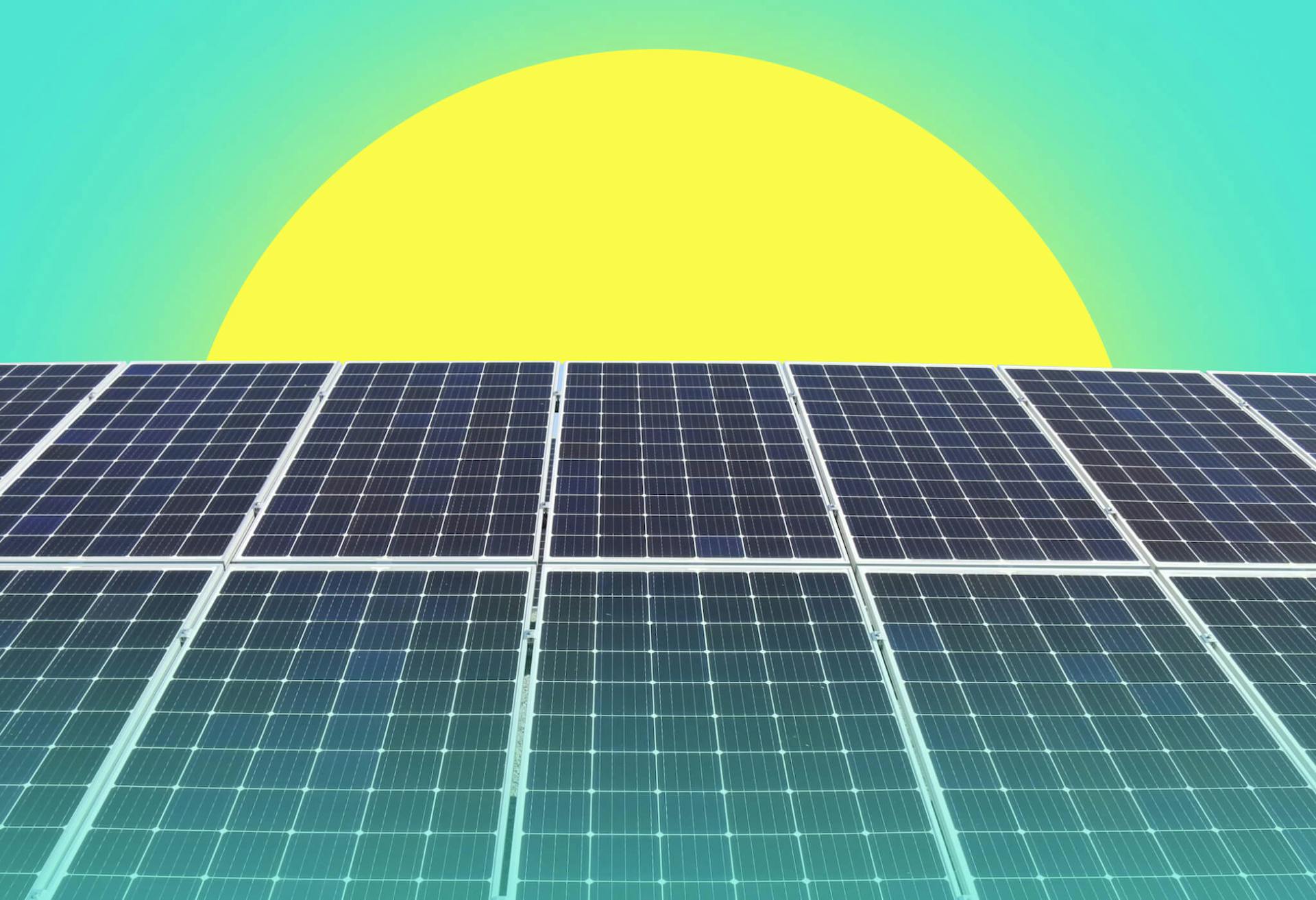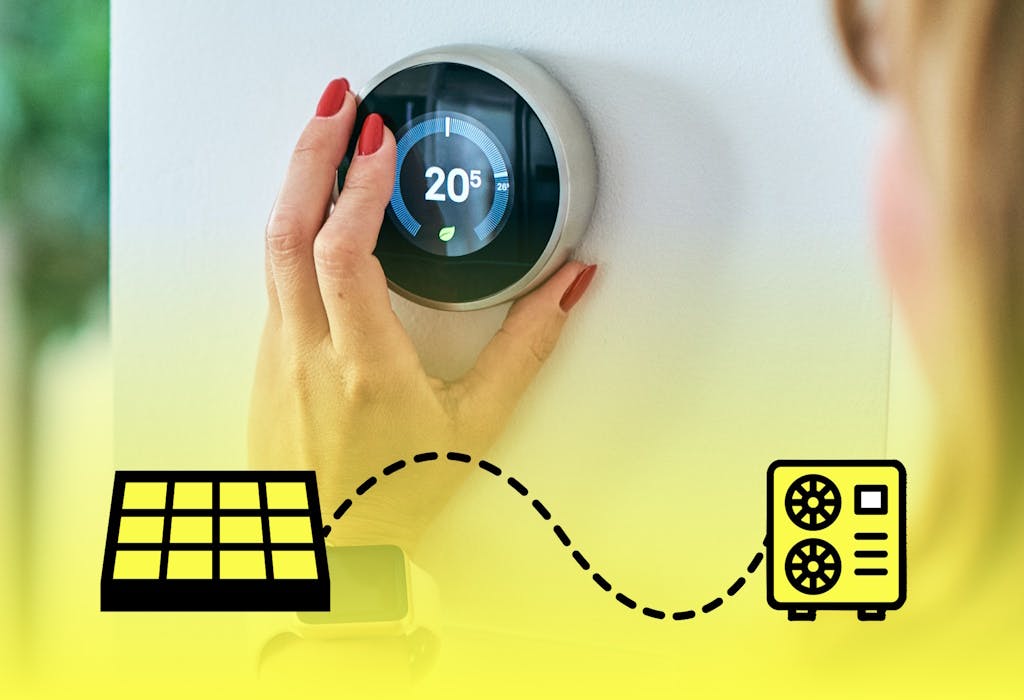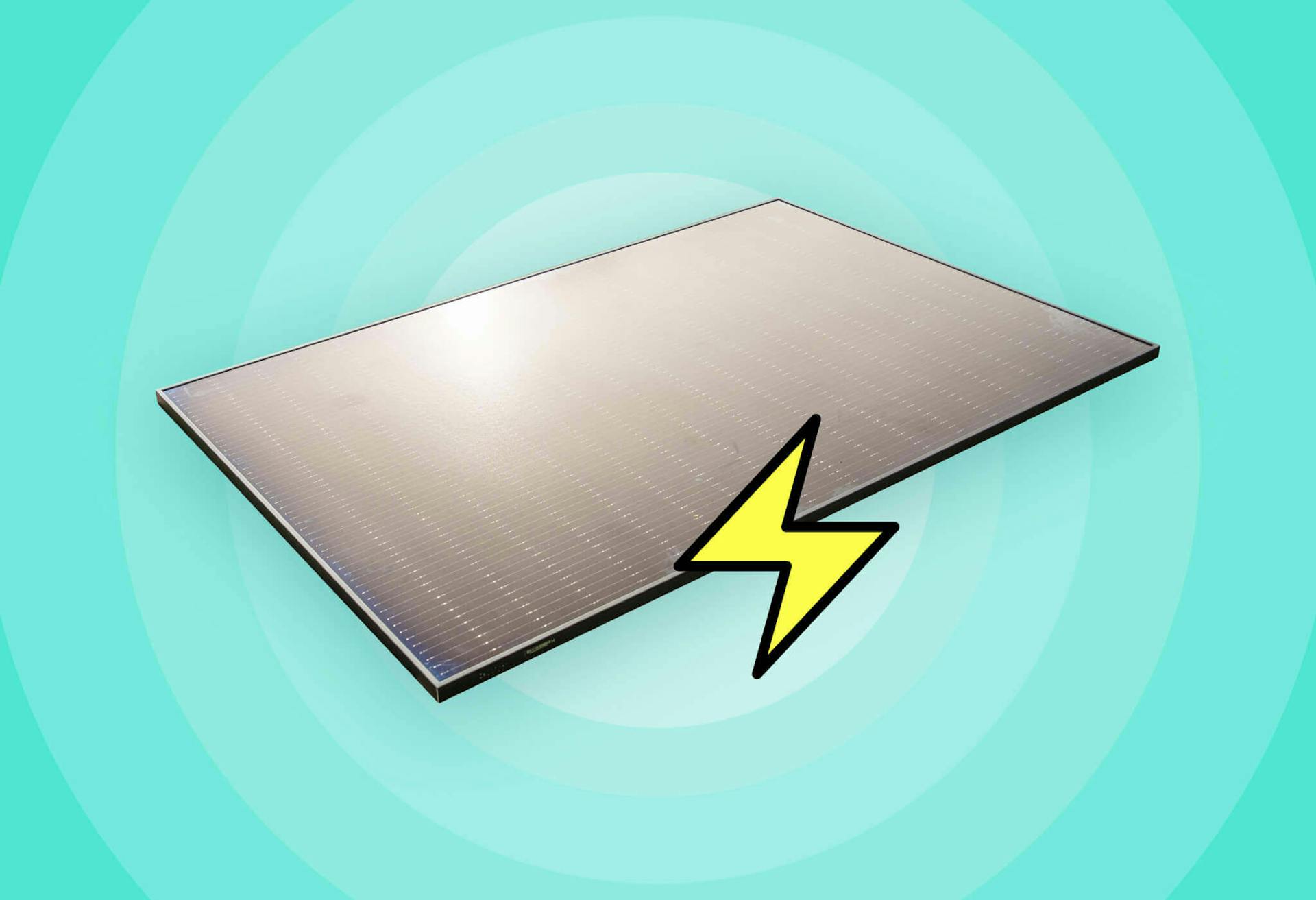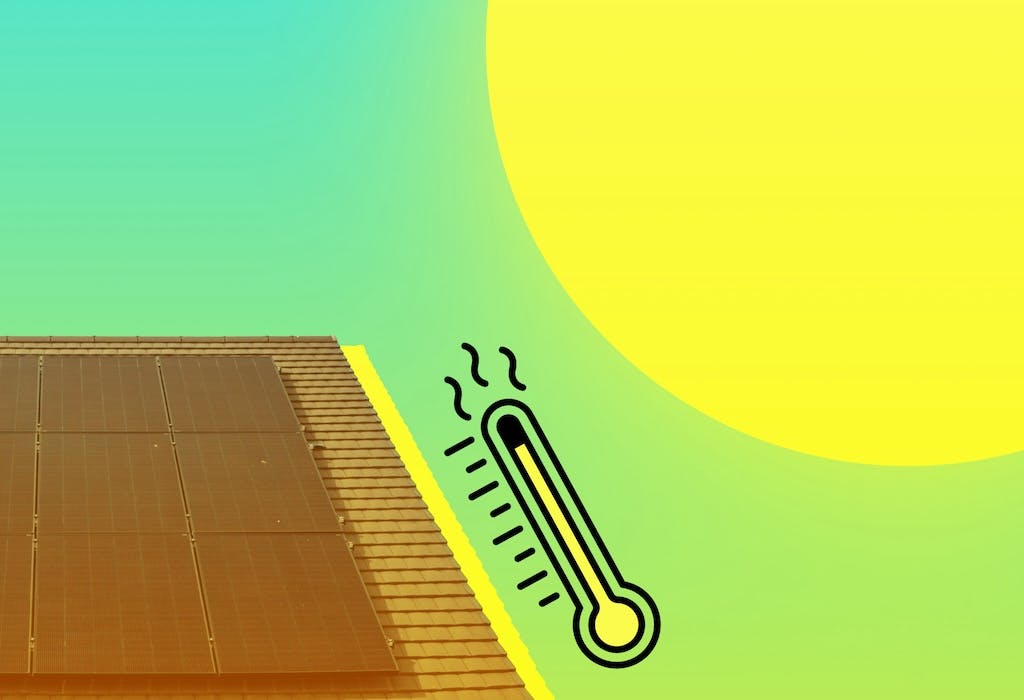- Solar advice hub
- How-solar-works
- Do solar panels work in winter?
Do solar panels work in winter?
How do solar panels perform in the winter months? Here's what happens to your output, and the best ways to help your system.


Why you can trust our content
We know that the solar industry is full of misinformation, but we only use reliable sources, including:
- Our experienced solar experts, installers and system designers
- Our own database of solar & battery system designs
- Authoritative bodies like MCS and the UK government



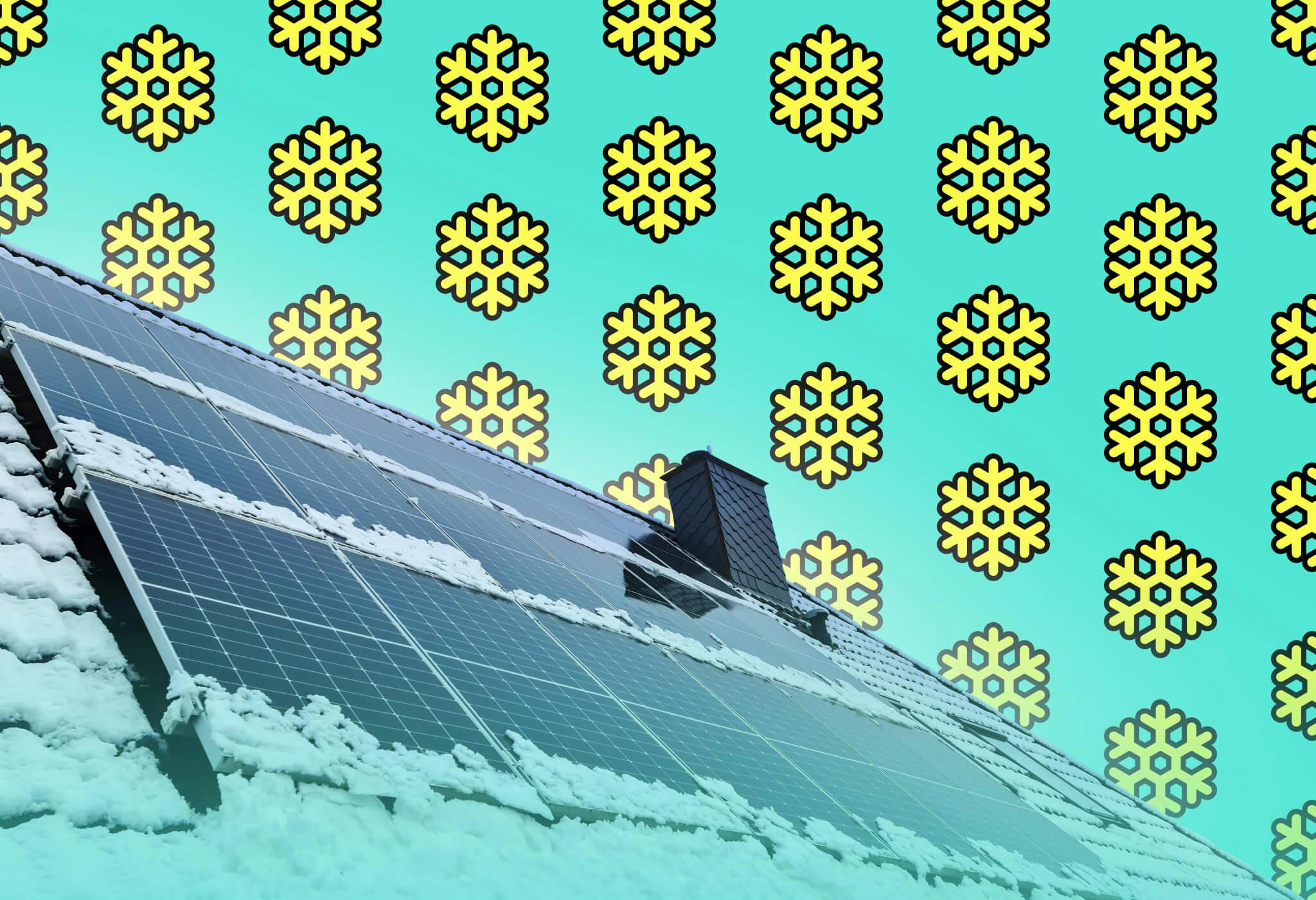
Calculate savings
What kind of home do you live in?
Calculate savings
What kind of home do you live in?
What you need to know
Each year as summer turns to winter, the days get shorter, and the sun drops lower in the sky, you may expect solar panels to become pretty redundant.
Thankfully, solar panels continue to work well on less sunshine, even if they don’t produce quite as much electricity as they do on clear summer days.
In this guide, we’ll explain how solar panels cope when there’s less warmth and daylight to go around, what level of output you can expect, and how to get the best out of your system during these colder times.
If you'd like to find out how much a solar & battery system could save you on your electricity bills, answer a few questions below and we'll provide an estimate for you.
Find out how much you can save
What kind of home do you live in?
Solar panel performance in winter
As solar panels need daylight rather than heat, they can still generate electricity during the frosty season – but they’re less effective due to a combination of these factors:
Winter days are shorter
The sun is visible in the sky for less time during winter, meaning there’s less daylight for solar panels to turn into electricity.
There’s three times more daylight in summer than in winter, according to UK government data that covers the past 20 years.
This results in your system producing less energy in the coldest months than it does at any other time of year.
The sun is lower in the sky
The arc of the sun as it moves through the sky is lower during the UK’s winter months, leading to less direct sunlight hitting your rooftop solar panels.
This is due to the Earth’s tilt of 23.44°. When a hemisphere is pointing towards the sun, it experiences summer. When it’s pointing the other way, that’s when winter hits.
This means the sun is lower in the sky throughout winter, and means the daylight that hits your panels does so at a shallower angle, causing less to be absorbed.
More debris land on panels
Things like snow, leftover autumn leaves and other debris can land on your panels in winter, blocking daylight, and reducing your system’s output even further.
There are also generally more problematic types of weather in winter than in summer, such as snow, hail, and storms, all of which can cause your panels to be obstructed.
The weather is cloudier
The skies above the UK are 51% cloudier in winter than in summer, on average.
This results in less daylight making its way to your panels, which of course makes your system less productive.
Light cloud cover typically reduces solar panel output by 24% when compared to a clear day, according to physicists at Nigeria’s Port Harcourt University.
And under heavy cloud cover, your system will produce 67% less electricity, on average.
Even with these challenges, solar panels are still a viable source of sustainable energy all year round. Winter doesn’t stop solar panels from producing a decent amount of electricity; your output just won’t be as high as it is in summer.
And with the high upfront cost of solar panels, you'd be right to expect them to keep working in all weather.
How does the UK winter affect solar panel output?
Solar panel output is lowest in winter for UK systems.
However, in some ways, your solar & battery system will benefit from the colder weather. Like most electrical installations, solar panels work best in cooler temperatures.
Although it seems odd for a device that likes to spend its time basking in sunlight, the electrical resistance of a solar cell decreases in colder weather, which means better electron flow and improved efficiency.
Efficiency is a measure of how much natural light a solar panel can convert into electricity, and is shown as a percentage.
So while your system’s output will be lower in winter because there’s less daylight, the chilly weather does at least slightly improve your panels’ efficiency, meaning the drop isn’t as severe as it could be.
Temperature extremes can also be harmful – whether that’s very cold or very hot weather – but thankfully, your panels shouldn’t reach either end of this scale.
A standard modern solar panel can keep operating at temperatures as low as -40°C, and as high as 85°C, so your UK-based panels should be absolutely fine.
Hotter temperatures usually affect solar & battery systems more, as the electronics within can be made sluggish by the heat, but the effect is still minimal – around 0.3% less efficiency for every degree above 25°C.
So if your panels heat up to 40°C, they’ll still be 95.5% as efficient as they normally are.
As you can see in the chart below, the average system is extremely productive in summer, generating around 38% of its annual output – far more than the 11% it produces in winter.
Solar panel output, winter vs summer
Do you need to buy electricity from the grid during winter?
You’ll need to buy some electricity from the grid during winter, but the power your solar panels generate will still cut your bills somewhat.
Then during summer, your system should produce more electricity than you need (as the chart below shows), cutting your bills dramatically and generating excess electricity that you can sell to the grid.
If you’re signed up to one of the best export tariffs, you can earn loads of income during these warmer months.
Switching to solar means getting lower electricity bills every month, but your savings won’t be evenly distributed across the year, and will be much higher in summer.

A solar & battery system can help UK households to make significant savings on their energy bills, despite producing less electricity in the winter months.
On average, you could save 86% on your electricity bills with a solar & battery system.
This figure is based on a sample of over 150 systems installed by Sunsave across England and Wales in 2024. The average system is 6.1kWp, with 54% of solar electricity used at home and 46% exported to the grid.
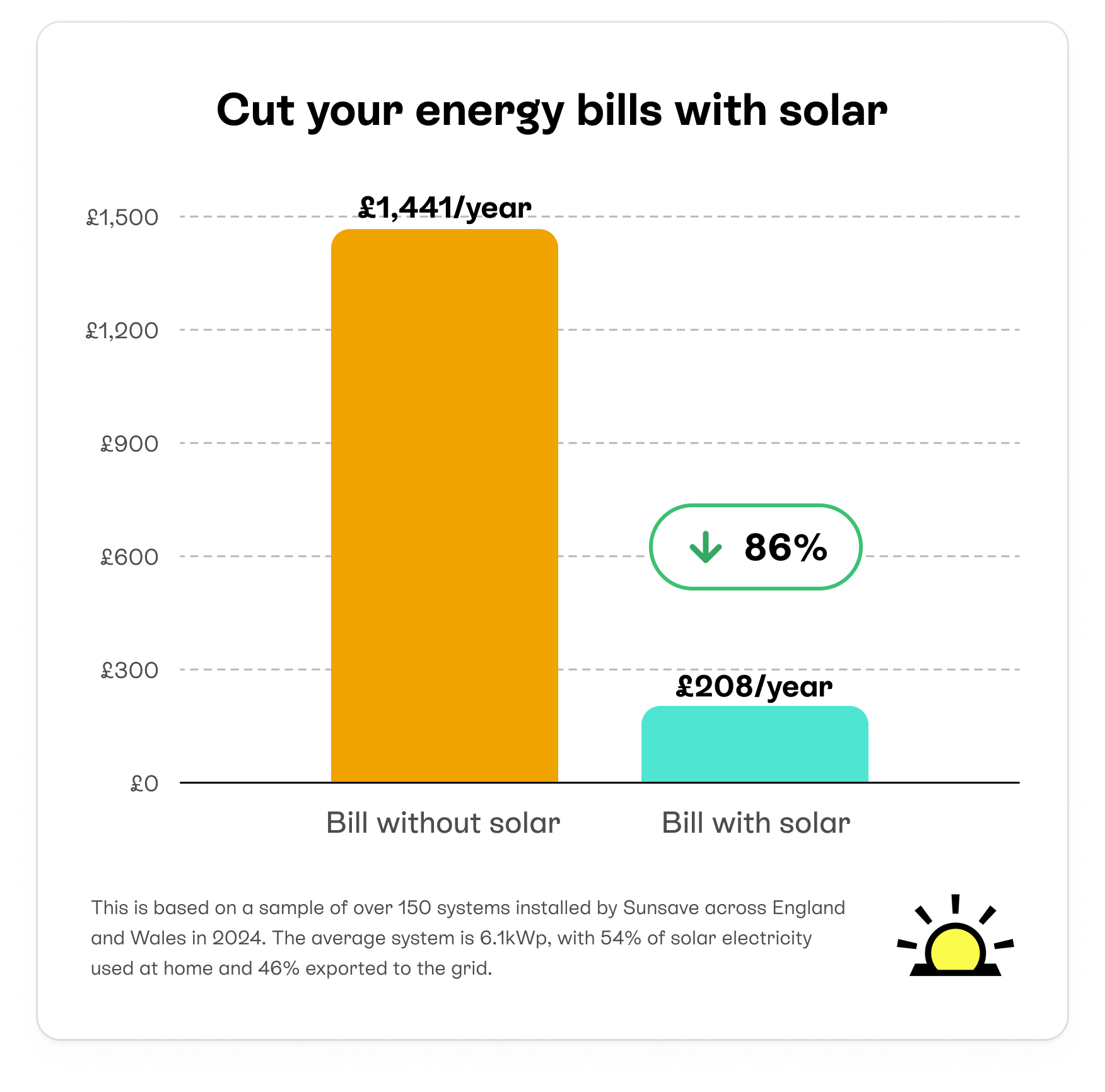
Can solar panels work in snow?
Solar panels still produce electricity in snow – except if the snow falls so heavily that it covers them completely.
Snow won’t start sticking to your panels until the temperature falls below -3°C, as the heat of your system causes it to melt away, even if up to 10cm of snow has gathered overnight, according to a scientific review from 2025.
A moderate amount of snow on your panels won’t stop daylight from getting through, but the more snow that gathers, the lower your system’s production levels will be.
Snow cover causes solar panels in Munich, Germany – where the climate is similar to the UK – to lose 0.3 to 2.7% of their output, according to the same study.
If snow blocks daylight from reaching your panels entirely, it’ll have the same effect as an overhanging tree branch, bird droppings, or any other source of shade.
In these extremely snowy conditions – which are thankfully rare in the UK – your output will be temporarily reduced, possibly to zero.
To clear your panels, just use a soft brush, to avoid damaging the surface. If you don’t fancy getting involved, you can hire a professional who’ll be glad to shift the snow – or you can leave it to melt on its own.
If you like this last option, your panels can handle the weight. Modern solar panels can deal with around 6,000 pascals of pressure, which is more than enough for UK snowfalls.
And seeing as your panels will be installed at an angle, the snow should slide off quickly once it starts melting.
It’s fortunate that most UK roofs are built at a roughly 40° angle, as scientists in the review above found that reducing a panel’s tilt from 40° to 30° in Utah led to a 6-19% increase in daily output losses.
Snow isn’t all bad for solar homes, though. It makes surfaces around your panels (e.g. the ground and your roof) more reflective, which means more reflected light will hit your panels.
This is especially useful if you have bifacial solar panels, which absorb daylight on both sides.
Can solar panels ever get too cold to work?
Although some solar panels can become less efficient if their temperature moves outside the optimum operating temperature (typically between 20°C and 25°C), quality panels are designed to withstand anything from -40°C to 85°C.
Thankfully, our milder UK winters are extremely unlikely to ever push your panels to -40°C or below.
To learn more about solar, check out our full rundown of the top 17 solar panel facts.
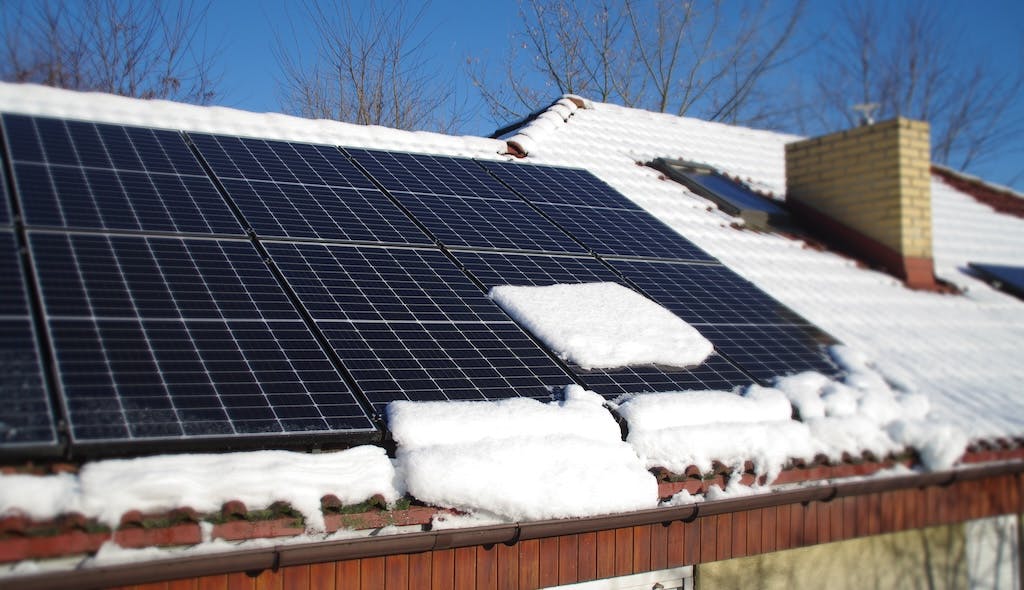
Are solar batteries affected by winter?
A solar battery’s capacity and charging rate can be affected by winter, but modern batteries usually contain self-heating elements that prevent them from getting too cold to charge or discharge.
It helps that if you’re on a time-of-use tariff, the cheapest time to charge your battery with grid electricity is at night, as this will ensure batteries heat themselves when it’s coldest.
This is fortunate, considering batteries are a key part of modern systems. Around 94% of new solar panel installations in the UK include a battery, according to data from Flexi-Orb and EPVS.
Batteries increase your self-consumption – the percentage of solar electricity used by your household – and give you access to the best export tariffs, time-of-use import tariffs, and grid flexibility services.
Their performance can suffer in the cold, though not usually dramatically. If a battery’s temperature – which is warmer than the air temperature – drops under 15°C, it will normally start a ‘charge derating’ process.
This means it’ll temporarily run a little less effectively, to ensure its own safety and reduce degradation that can result from trying to run at full pelt when it’s cold.
When its temperature hits 0°C, some batteries’ management systems will stop charging completely as a protective measure, though others can keep charging until they hit -20°C.
Discharging should also continue until the battery’s temperature is -10°C or even -25°C, depending on the model.
To learn more, check out our full guide to storage batteries.
Summary
Despite the days being shorter, solar panels can still work effectively during winter in the UK, especially on clear days.
We've seen that cold weather can boost output, and though snow can be a bit of a hassle, you can still take full advantage of winter sunshine with some well-positioned panels and proper care.
And even if you do see lower output in winter, you can still make significant savings every year, thanks to solar panels’ excellent production levels during spring and summer.
If you’re wondering how much a solar & battery system could save you on your electricity bills, answer a few questions below and we'll provide an estimate for you.
Find out how much you can save
What kind of home do you live in?
Solar panels in winter: FAQs
Related articles

Written byJosh Jackman
Josh has written about the rapid rise of home solar for the past six years. His data-driven work has been featured in United Nations and World Health Organisation documents, as well as publications including The Eco Experts, Financial Times, The Independent, The Telegraph, The Times, and The Sun. Josh has also been interviewed as a renewables expert on BBC One’s Rip-Off Britain, ITV1’s Tonight show, and BBC Radio 4 and 5.
